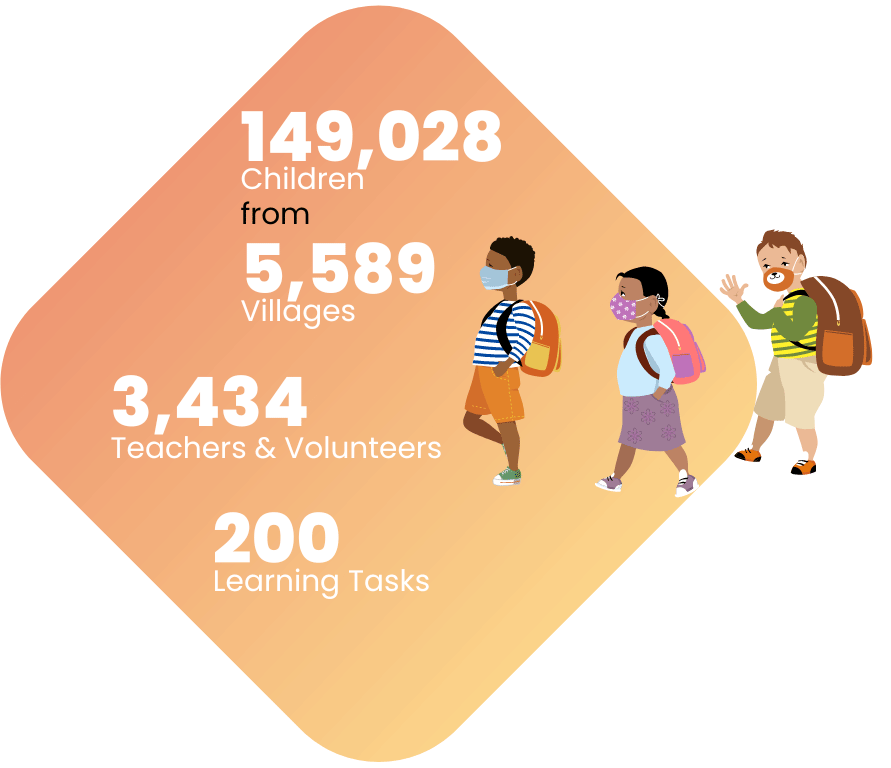Recognising this education emergency, Aspire with funding from Tata Steel Foundation initiated an innovative physical+digital learning intervention, called Lockdown Learning, to maintain continuity of learning for children in its project area.
The intervention sent volunteer teachers, who were recruited from the local area, to visit participating students at home or in small groups. Each week, the teacher would bring a task and pedagogical support to the children. Students worked independently, using locally available resources and support from their parents, neighbors, and peers to complete tasks. At the end of the week, the teacher returned to discuss, collect, and review the work. With an interdisciplinary approach and innovative method, children learned from their surroundings which enhanced creative thinking, developed problem-solving skills, self-guided learning, improved imagination and critical observation.
Children have become self-directed learners, taking charge of their own learning. Parents and families also got involved in children’s studies for the first time. There has been a big increase in the quantity and quality of reading and writing skills. Children developed new skills, such as, managing time, becoming independent, ICT and communication skills.

